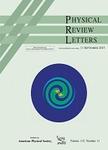版权所有:内蒙古大学图书馆 技术提供:维普资讯• 智图
内蒙古自治区呼和浩特市赛罕区大学西街235号 邮编: 010021

作者机构:Shenzhen Institute for Quantum Science and Engineering and Department of Physics Southern University of Science and Technology Shenzhen 518055 China Guangdong Provincial Key Laboratory of Quantum Science and Engineering Southern University of Science and Technology Shenzhen 518055 China Research Center for Quantum Sensing Zhejiang Lab Hangzhou Zhejiang 311121 China
出 版 物:《Physical Review Letters》 (Phys Rev Lett)
年 卷 期:2022年第129卷第10期
页 面:100603-100603页
核心收录:
基 金:Guangdong International Collaboration Program, (2020A0505100001) Guangdong Provincial Key Laboratory, (2019B121203002) Zhejiang Lab, (2021MB0AL01) Guangdong Innovative and Entrepreneurial Research Team Program, (2019ZT08C044) Guangdong Innovative and Entrepreneurial Research Team Program National Natural Science Foundation of China, NSFC, (11875159, 11905099, 11975117, 12075110, 12104213, U1801661) National Natural Science Foundation of China, NSFC Science, Technology and Innovation Commission of Shenzhen Municipality, (2021B1515020070, JCYJ20170412152620376, JCYJ20180302174036418, JCYJ20200109140803865, KQTD20190929173815000, RCYX20200714114522109, ZDSYS20170303165926217) Science, Technology and Innovation Commission of Shenzhen Municipality National Key Research and Development Program of China, NKRDPC, (2019YFA0308100) National Key Research and Development Program of China, NKRDPC Basic and Applied Basic Research Foundation of Guangdong Province, (2019A1515011383, 2020A1515110987) Basic and Applied Basic Research Foundation of Guangdong Province
主 题:Quantum simulation Quantum thermodynamics
摘 要:Indefinite causal order (ICO) is playing a key role in recent quantum technologies. Here, we experimentally study quantum thermodynamics driven by ICO on nuclear spins using the nuclear magnetic resonance system. We realize the ICO of two thermalizing channels to exhibit how the mechanism works, and show that the working substance can be cooled or heated albeit it undergoes thermal contacts with reservoirs of the same temperature. Moreover, we construct a single cycle of the ICO refrigerator based on the Maxwell’s demon mechanism, and evaluate its performance by measuring the work consumption and the heat energy extracted from the low-temperature reservoir. Unlike classical refrigerators in which the coefficient of performance (COP) is perversely higher the closer the temperature of the high-temperature and low-temperature reservoirs are to each other, the ICO refrigerator’s COP is always bounded to small values due to the nonunit success probability in projecting the ancillary qubit to the preferable subspace. To enhance the COP, we propose and experimentally demonstrate a general framework based on the density matrix exponentiation (DME) approach, as an extension to the ICO refrigeration. The COP is observed to be enhanced by more than 3 times with the DME approach. Our Letter demonstrates a new way for nonclassical heat exchange, and paves the way towards construction of quantum refrigerators on a quantum system.